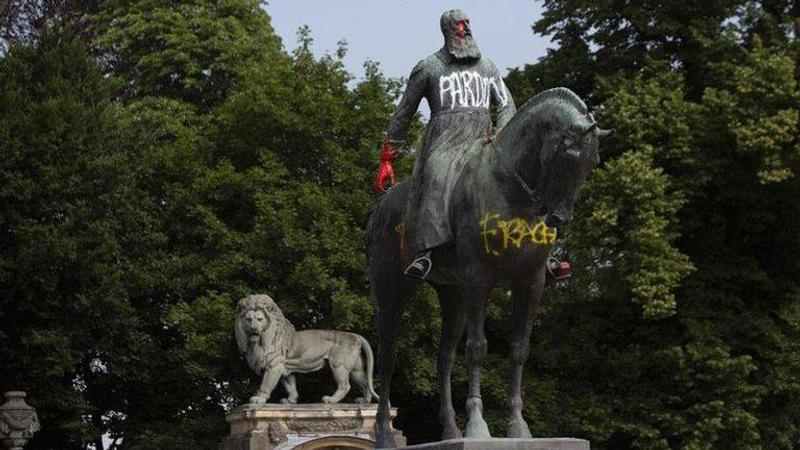Published 10:57 IST, June 30th 2020
Women sue Belgium for crimes against humanity
Five biracial women born in Congo when the country was under Belgian rule who were taken away from their Black mothers have filed a lawsuit for crimes against humanity targeting the Belgian state.

Five biracial women born in Congo when the country was under Belgian rule who were taken away from their Black mothers have filed a lawsuit for crimes against humanity targeting the Belgian state.
With their claim, they hope Belgium will finally recognize its responsibility in the suffering endured by the thousands of biracial children, known as "métis,″ who were snatched away from families and placed in religious institutions and homes.
Last year, Belgium's then-prime minister, Charles Michel, apologised to the métis children who were kidnapped toward the end of the colonization period in the 1940s and 1950s.
The five women, all born between 1945 and 1950, filed their lawsuit as the Democratic Republic of Congo prepares to celebrate the 60th anniversary of the country's independence amid growing demands that Belgium reassess its colonial past.
In the wake of the protests against racial inequality in the United States, several statues of King Leopold II, who is blamed for the deaths of millions of Africans during Belgium's colonial rule, have been sprayed with paint, while a petition called for the country to remove all statues of the former king.
Lawyer Michele Hirsch said the five women — four who now live in Belgium and one in France — were aged between 2 and 4 when they were taken away at the request of the Belgian colonial administration, in cooperation with the local Catholic church authorities.
Monique Bitu Bingu was a four-year-old girl when she was taken away from her family in Belgian Congo and placed in a Catholic mission.
Her friend Lea Tavares Mujinga was a two-year-old toddler.
According to the legal documents, in all five cases the fathers did not exercise parental authority and the Belgian administration threatened the children's Congolese families with reprisals if they refused to let them go.
The children were placed at a religious mission in Katende, in the province of Kasai, with the Sisters of Saint Vincent de Paul.
There, they lived with some 20 other biracial girls and Indigenous orphans in very hard conditions.
According to the lawyer, the Belgian state's strategy aimed at preventing interracial unions and isolating métis children, known as the "children of shame," to make sure they would not claim a link with Belgium later in their lives.
After independence, the legal documents claim that the children were left abandoned by both the State and the Church, and that some of them were sexually molested by militia fighters.
The women have requested compensation of 50,000 euros each.
"This is not for the money," Hirsch said. "We want a law that can apply to all so that the Belgian State recognizes the crimes committed and the suffering endured by métis children."
Christophe Marchand, one of the layers representing the women, said what the women had been through was " a crime against humanity".
Time has passed since the women were forced to cut ties with their relatives, but the trauma they went through has never been fully addressed, and their pain remains immense.
Updated 10:57 IST, June 30th 2020




